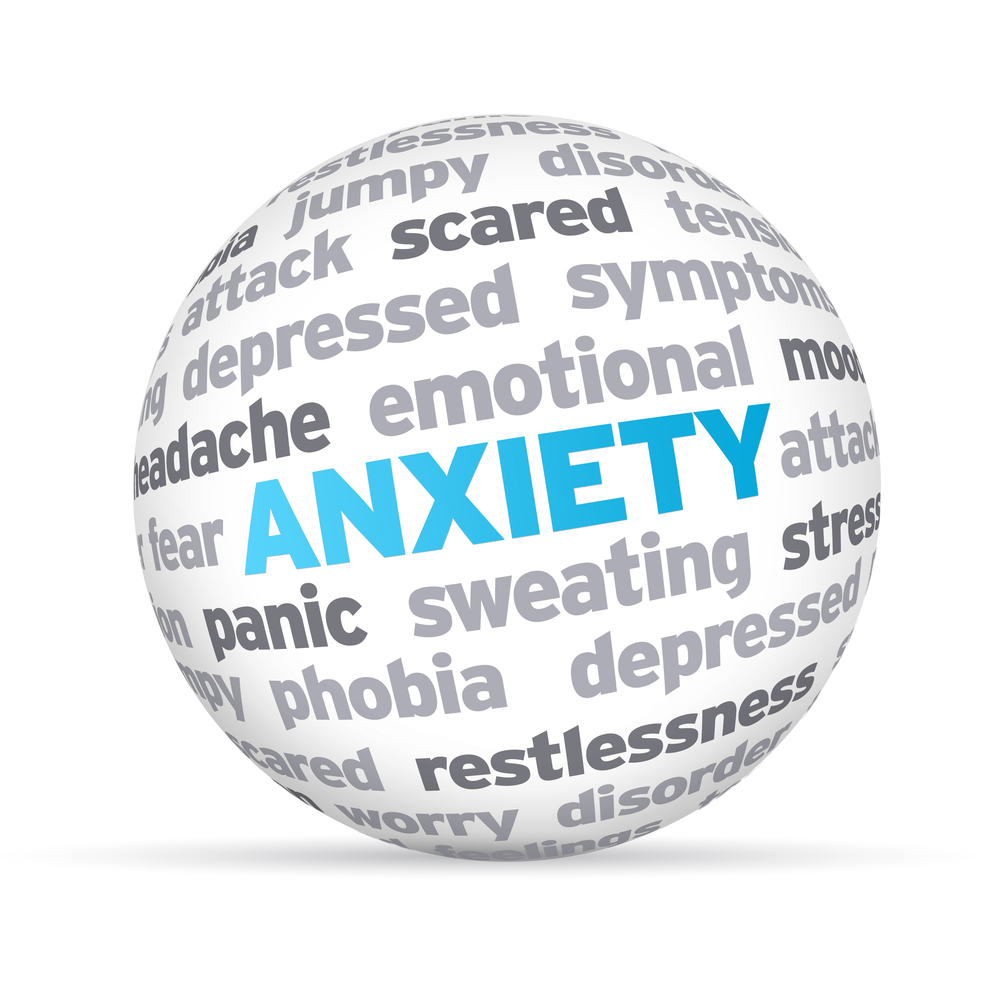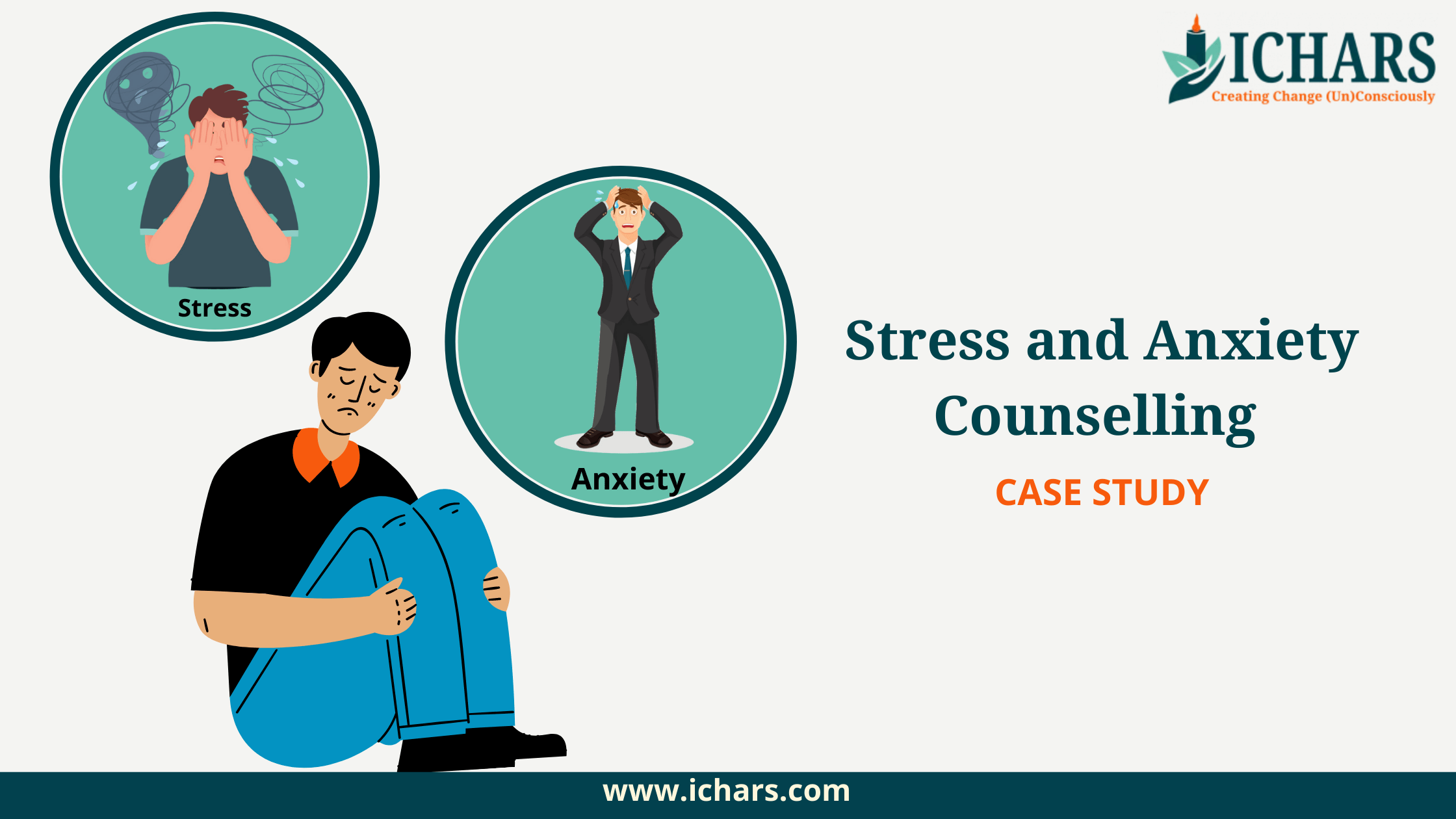Start your path with counselling for anxiety disorder guided by professionals
Start your path with counselling for anxiety disorder guided by professionals
Blog Article
Checking Out Various Approaches in Coaching for Anxiety Problem for Long-term Adjustment
When tackling anxiety disorders, it's vital to explore a range of counseling approaches. Each method offers special understandings and devices to assist you handle your symptoms efficiently. You may locate that incorporating techniques can produce the ideal results. Comprehending the nuances of these methods is key to fostering long-term change. Suppose the ideal combination could release a brand-new level of emotional well-being for you?
Understanding Anxiety Problems: A Short Overview
Anxiety disorders, which influence countless individuals worldwide, can substantially affect life. You may experience overwhelming sensations of fear or fret that appear irrepressible. These sensations can result in physical signs and symptoms like a racing heart, sweating, or perhaps lightheadedness. Usual kinds of stress and anxiety disorders include generalised anxiety disorder, panic attack, and social anxiety disorder. Each has unique signs, yet they all share a tendency to disrupt your routine and relationships.Understanding the source of your anxiousness is crucial. It might originate from genetics, mind chemistry, or life experiences. Identifying your triggers can assist you handle your responses much better. It is very important to bear in mind that you're not the only one in this struggle. Lots of people face similar challenges, and seeking assistance is a strong step towards sensation better. By finding out about stress and anxiety disorders, you're currently on the path to understanding and handling your condition extra efficiently.
Cognitive-Behavioral Therapy: Challenging Adverse Thought Patterns
In Cognitive-Behavioral Therapy, you'll begin by recognizing the unfavorable thought sets off that add to your anxiousness. You'll function on changing them with more positive options once you identify these thoughts. Together, you'll build effective coping methods to aid handle your anxiousness in day-to-day situations.
Determining Adverse Idea Triggers

Identifying the details triggers behind your negative ideas can be essential in managing anxiousness when you encounter moments of distress. Begin by taking notice of circumstances that prompt sensations of concern or concern. Is it a jampacked room, an approaching target date, or a discussion with specific individuals? Take down these circumstances in a journal. This will certainly help you recognize patterns in your reasoning. Notification physical experiences that accompany your negative ideas, like a racing heart or rigidity in your upper body. By pinpointing these triggers, you obtain understanding into what's sustaining your anxiety. Comprehending these connections is the initial step in testing those thoughts and eventually gaining back control over your emotional responses.
Changing Ideas With Positives
Challenging adverse thought patterns is an important action in transforming your way of thinking and decreasing anxiousness. You may commonly find yourself trapped in cycles of insecurity or tragic reasoning. Rather than letting these ideas determine your feelings, technique changing them with positive affirmations or reasonable alternatives. When you think, "I can't handle this," change it to, "I can handle obstacles one step at a time." This easy adjustment can significantly influence your emotion. Frequently recognizing and responding to these adverse ideas assists create a much healthier internal dialogue. Remember, it takes some time and initiative, however regularly exercising this strategy can lead to long lasting modification, encouraging you to deal with anxiety with renewed confidence and resilience.
Structure Coping Strategies With Each Other
Replacing negative ideas is only the beginning of taking care of anxiousness effectively. To create long-term adjustment, you require to build coping techniques that equip you. Cognitive-Behavioral Therapy (CBT) assists you identify and test those purposeless idea patterns. Together, you and your therapist can explore exactly how these thoughts effect your sensations and behaviors.Start by creating functional techniques, like journaling or mindfulness exercises, that permit you to challenge anxiousness head-on. When you face your fears progressively, you'll discover to react in different ways.

Mindfulness and Acceptance-Based Approaches: Growing Present-Moment Recognition
As you browse the intricacies of anxiety, incorporating mindfulness and acceptance-based methods can significantly boost your ability to cultivate present-moment awareness. By focusing on the below and currently, you'll locate that you can observe your ideas and sensations without judgment (Counseling services for anxiety). This practice assists you recognize your anxiousness without feeling overwhelmed by it.Engaging in mindfulness workouts, such as deep breathing, body scans, or directed meditations, enables you to ground on your own in your present experience. Acceptance-based strategies encourage you to welcome your feelings as opposed to fight against them. When you accept your sensations, they shed their power over you.Incorporating these practices into your day-to-day routine can change how you reply to stress and anxiety. You'll establish resilience and discover to navigate difficult scenarios with greater ease. Inevitably, cultivating present-moment understanding lays the foundation for enduring adjustment, empowering you to lead a more satisfying life
Direct Exposure Therapy: Facing Worries Slowly
Direct exposure treatment aids you confront your worries in a steady way, making it much less overwhelming. You'll discover strategies to face anxiety-provoking situations detailed, while likewise constructing coping methods to handle your reactions. This strategy encourages you to take control and reduce stress and anxiety in time.
Gradual Exposure Methods

When dealing with anxiousness, gradually facing your fears can be a powerful way to restore control. This method, referred to as steady exposure, entails slowly revealing on your own to the circumstances or items that activate your anxiety. Begin with much less daunting scenarios and slowly function your method approximately even more difficult ones. For example, if you hesitate of public speaking, you could begin by speaking in front of a mirror, then proceed to sharing thoughts with a good friend, and at some point attend to a small group. Each step assists desensitize you to the fear, developing your self-confidence with time. Keep in mind, it's essential to pace yourself and commemorate tiny victories as you relocate via this procedure, strengthening your capability to manage stress and anxiety efficiently.
Structure Coping Approaches
Building efficient coping techniques is important for managing anxiety, particularly as you challenge your concerns gradually - Counseling services for anxiety. One effective method is direct exposure therapy, where you begin by encountering your concerns in a regulated manner. Start with less frightening circumstances and gradually work your method as much as more difficult scenarios. This progressive direct exposure aids desensitize you to stress and anxiety triggers, making them much less overwhelming.Incorporate relaxation strategies, such as deep breathing or mindfulness, to calm your mind throughout exposure. Track your progress, commemorating little triumphes along the way to enhance your confidence. Keep in mind, it's all right to take your time; the objective isn't excellence yet consistent improvement. By constructing these approaches, you'll equip yourself to browse stress and anxiety and accept life more totally
Psychodynamic Therapy: Uncovering Origin of Anxiety
Psychodynamic therapy checks out the unconscious mind, disclosing the source of your stress and anxiety. By analyzing your ideas, feelings, and past experiences, this technique assists you uncover underlying problems and unresolved concerns that may add to your current stress and anxiety. You'll collaborate with a specialist to check out childhood years experiences, partnerships, and emotional patterns that shape your feedbacks today.As you acquire insight right into these much deeper layers of your mind, you'll begin to recognize exactly how past occasions influence your present habits. This understanding can lead to catharsis, enabling you to process emotions you might have suppressed.Through the therapeutic partnership, you can also determine protection systems that may have established over time, using a clearer course to alter. Ultimately, psychodynamic therapy furnishes you with the devices to resolve your stress and anxiety at its core, promoting enduring improvement in your psychological health.
Integrative and Alternative Techniques: Incorporating Methods for Greater Efficacy
Incorporating different restorative strategies can enhance your journey towards managing stress and anxiety a lot more efficiently. By integrating elements from cognitive-behavioral therapy, mindfulness practices, and all natural techniques, you can create an individualized method that addresses your special requirements. You could utilize cognitive-behavioral strategies to challenge adverse idea patterns while incorporating mindfulness exercises to ground yourself in the present moment.Additionally, exploring all natural techniques such as yoga or reflection can promote leisure and reduce stress and anxiety signs and symptoms. This blend enables you to create higher self-awareness and resilience.Experimenting with these varied methods can help you discover what reverberates most with you. Remember, it has to do with locating a synergy that functions, as opposed to staying with a solitary method. This integrative technique not only uses prompt alleviation yet likewise fosters long-term abilities for managing stress and anxiety, equipping you to reclaim control over your life.
The Function of Support Equipments: Building Strength Via Link
While it may appear that handling anxiousness is a solitary journey, having a strong support group can play an important role in your strength. Bordering on your own with understanding pals, family members, or support system creates a secure space where you can freely share your feelings and experiences. You advise on your own that you're not alone in this struggle.These connections offer encouragement and can offer useful coping strategies that have functioned for others when you connect with others. It's likewise a possibility to acquire viewpoint; buddies can assist you see situations differently, decreasing sensations of isolation.Moreover, emotional assistance cultivates a feeling of belonging, which can significantly reduce anxiety symptoms. By leaning on your support group, you can construct durability and tackle difficulties better. Bear in mind, getting to out for aid is an indication of toughness, and it can make all the difference in your journey toward handling anxiety.
Frequently Asked Questions
What Are the Usual Symptoms of Stress And Anxiety Problems?
You might experience uneasyness, exhaustion, difficulty concentrating, irritability, muscle tension, and sleep disruptions. Physical signs and symptoms can consist of rapid heartbeat, sweating, and trembling. Acknowledging these indications early can aid you seek proper assistance and treatment.
Just How Lengthy Does Therapy Commonly Last for Anxiousness Problems?
Therapy for anxiety problems commonly lasts anywhere from a few weeks to numerous months. It actually depends upon your individual needs, progress, and the methods your specialist utilizes to help you manage your stress and anxiety efficiently.
Can Drug Be Used Together With Treatment for Anxiousness?
Yes, drug can absolutely be made use of together with treatment for anxiousness. Integrating both techniques commonly boosts therapy efficiency, aiding you take care of signs and symptoms while discovering underlying problems through therapy (Counseling services for anxiety). Constantly consult your medical care service provider for personalized suggestions
Exist Self-Help Techniques for Taking Care Of Stress And Anxiety?
Yes, there are numerous self-help approaches for managing anxiety. You can practice mindfulness, participate in regular exercise, preserve a well balanced diet regimen, develop a regular, and utilize deep breathing methods to help in reducing stress and anxiety signs efficiently.
Exactly how Do I Know if I Need Specialist Help for Anxiousness?

Report this page